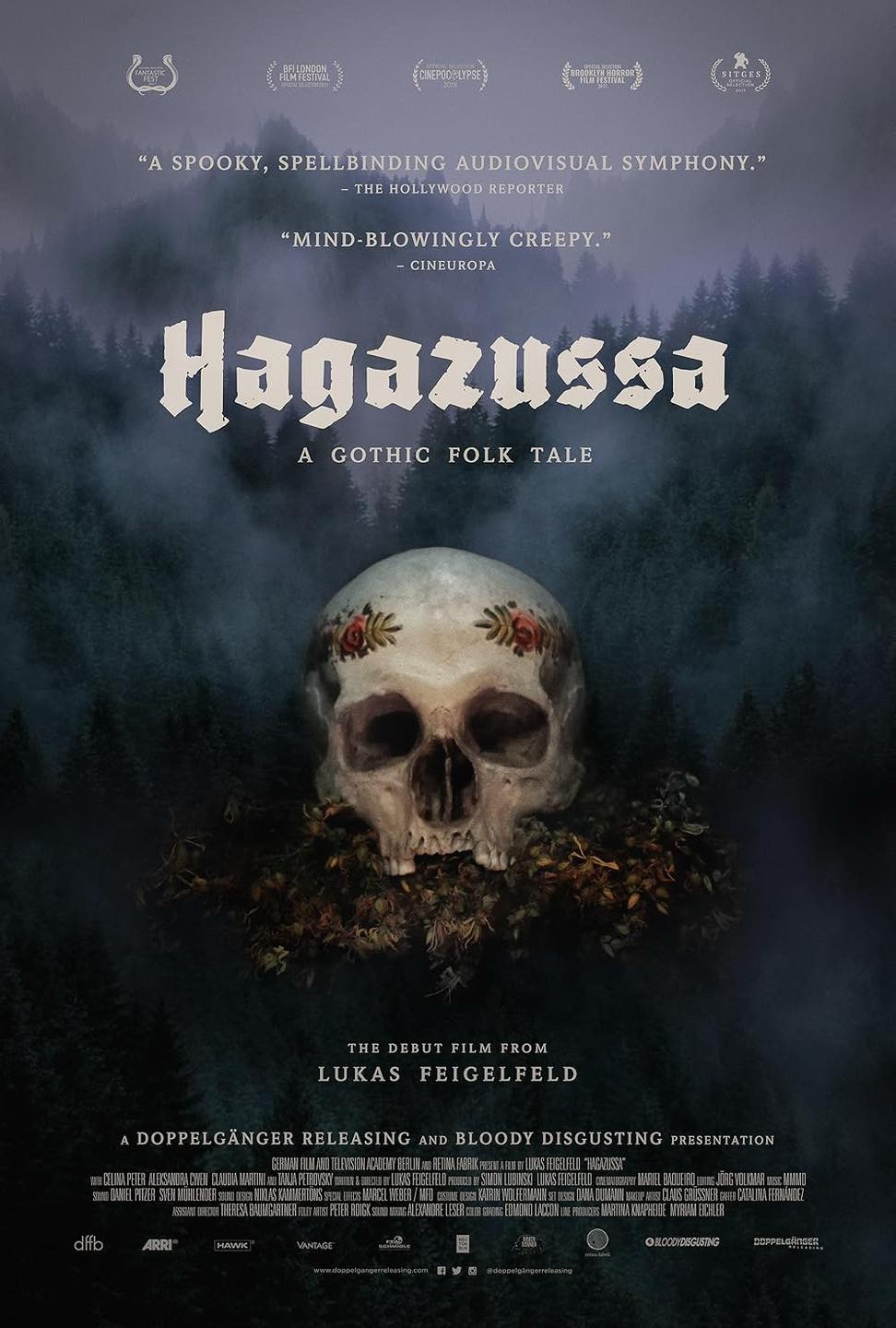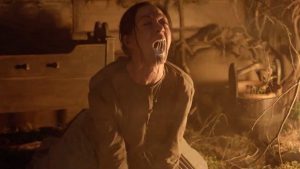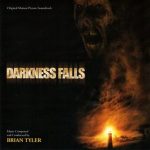Hagazussa (2017)

Overview
Hagazussa: A Heathen’s Curse is an atmospheric horror film from 2017, marking the debut of German director Lukas Feigelfeld. This deeply unsettling film delves into themes of isolation, superstition, and madness, following the tragic life of Albrun, a young woman shunned and persecuted by her community in a remote Austrian village during the 15th century. Hagazussa is often compared to The Witch (2015) for its historical horror elements and slow-burning tension, but it is distinctive for its haunting visual style and nearly dialogue-free storytelling.
Suggested videos for you:
Plot Summary
The story unfolds in two parts: the first focuses on Albrun’s childhood, living with her mother in a secluded cabin. Her mother’s mysterious illness and death under inexplicable circumstances set the stage for the sinister forces surrounding Albrun. The second half follows Albrun as an adult, still isolated and haunted by her traumatic past. Ostracized by the local villagers who suspect her of witchcraft, Albrun is drawn into a horrifying descent as she becomes mentally fractured and obsessed with the supernatural forces that seem to surround her.
The plot is sparse and cryptic, relying heavily on atmosphere and symbolism rather than a linear narrative. This stylistic choice requires the audience to piece together Albrun’s fragmented psyche and draw their own conclusions about the true nature of her suffering and the extent to which supernatural forces are at play.
Atmosphere and Cinematography
Hagazussa is a triumph in visual storytelling. The cinematography by Mariel Baqueiro is stunning, capturing the stark beauty and haunting isolation of the alpine landscape. Feigelfeld uses long, lingering shots and natural lighting to craft an unsettling and immersive atmosphere. The images are frequently quiet, almost painterly, but they pulse with an ominous energy that keeps viewers on edge. From mist-covered mountains to dense forests, the cinematography communicates an overpowering sense of dread and desolation.
One of the film’s strengths is its meticulous attention to period details, which immerses the audience in the harshness of 15th-century rural life. Feigelfeld’s choice to forgo extensive dialogue reinforces the isolation of Albrun’s existence, making her inner turmoil feel even more intense.
Themes and Symbolism
The film is filled with heavy, provocative symbolism, and much of it focuses on the concepts of madness, persecution, and feminine suffering. Albrun is an outsider, feared and loathed by her neighbors, and her status as a woman in this deeply patriarchal society compounds her isolation. Her journey is marked by haunting visions and strange, pagan-like rituals, which blur the line between reality and hallucination.
The title, Hagazussa, refers to an old German word for “witch” or “hag,” indicating the film’s focus on the legacy of witchcraft as it intersects with themes of misogyny and superstition. Albrun’s life echoes the real historical witch hunts that persecuted women for their supposed connections to the occult, creating a powerful commentary on societal alienation and the destructive nature of fear-driven judgment.
Sound and Music
The film’s score is another crucial element in its creation of atmosphere. Feigelfeld worked with composer MMMD (Mohammad), whose droning, ambient soundscapes are oppressive and immersive. The score isn’t intrusive; rather, it serves as a background thrum that adds to the film’s disorienting effect. Combined with the natural sounds of Albrun’s isolated world, the music deepens the pervasive unease and heightens the psychological horror.
Performance
Aleksandra Cwen delivers a compelling performance as Albrun, capturing her character’s vulnerability, rage, and descent into madness with haunting authenticity. Cwen’s portrayal is deeply physical and understated, expressing Albrun’s anguish and paranoia largely through her body language and facial expressions. The lack of dialogue puts the weight of the story on her shoulders, and she manages to convey both the horror of her circumstances and the tragic inevitability of her fate without words.
Pacing and Structure
Hagazussa is undeniably a slow-paced film. Its methodical pacing and minimalistic approach may not appeal to all viewers, especially those expecting conventional horror thrills. The film is almost meditative in its approach, taking its time to immerse the viewer in Albrun’s psyche and surroundings. The gradual build-up creates a unique sense of tension, where every small sound or movement feels loaded with significance.
The deliberate pacing serves a purpose: it mirrors the slow unraveling of Albrun’s mental state and the creeping influence of supernatural or imagined forces. However, some may find it overly slow and challenging, as it prioritizes atmosphere and mood over plot-driven momentum.
Reception and Analysis
Since its release, Hagazussa has gained a cult following for its unique approach to horror and its uncompromising vision. Many critics praised Feigelfeld’s decision to prioritize mood over explicit horror, while others found the film’s pace and lack of clear narrative structure difficult to engage with. It has been lauded as a powerful exploration of loneliness, persecution, and madness, but it requires patience and an openness to ambiguity.
In comparison to mainstream horror, Hagazussa is more an art-house horror film, challenging audiences with its contemplative pacing and ambiguous narrative. It is an experience that is more about feeling and interpreting than watching, making it a film that viewers are likely to ponder long after it ends.
Final Thoughts
Hagazussa is a polarizing but unforgettable film. For those willing to immerse themselves in its dark and oppressive world, it offers a haunting meditation on alienation, fear, and the destructiveness of superstition. The film stands out for its bold visual style, strong lead performance, and its willingness to forgo conventional horror tropes in favor of a more introspective, psychological approach. However, its slow pacing and minimalist storytelling may be challenging for viewers seeking a more traditional horror experience.
For fans of atmospheric horror and arthouse cinema, Hagazussa is a profound, if unsettling, cinematic journey into the heart of darkness. It’s a film that lingers, haunting its audience with its unrelenting bleakness and the tragedy of a life consumed by fear and isolation.










